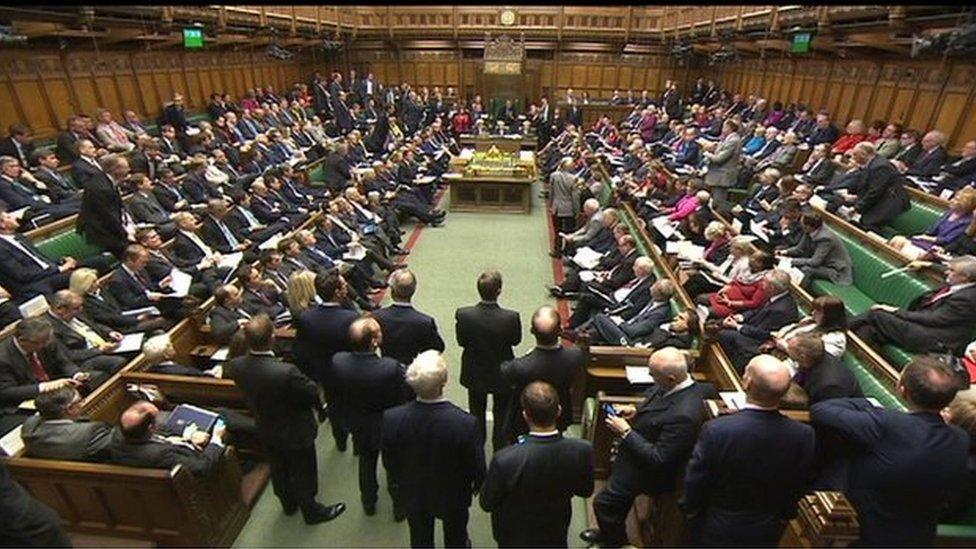Election 2022: Welsh politics needs more women, new councillor says
- Published

Newly-elected councillor Catherine Fookes believes direct action is needed to reach gender balance
The number of female councillors in Wales is rising - but gender parity will take "a long, long time," according to one expert.
Last week's elections saw Vale of Glamorgan and Monmouthshire become the first councils in Wales with an equal split of female and male councillors.
A total of 36% of all councillors in Wales are women, up 8% since 2017.
Newly elected Catherine Fookes called the increase "brilliant," but said more women were still needed.
"Women make up 50% of the population, therefore they really need to be represented," she said, adding that better policies for issues that affect women will only be possible with female representatives.
Ms Fookes, a new Monmouthshire councillor added: "We're definitely not moving fast enough as a society toward gender balanced politics."
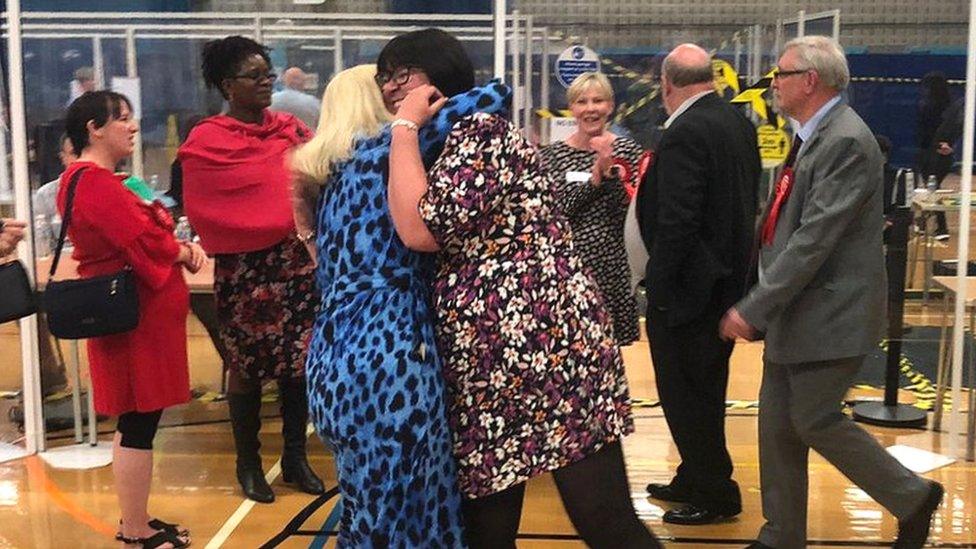
Wales' recent local elections saw more women representatives elected in every council area

What proportion of councillors in Wales are women?
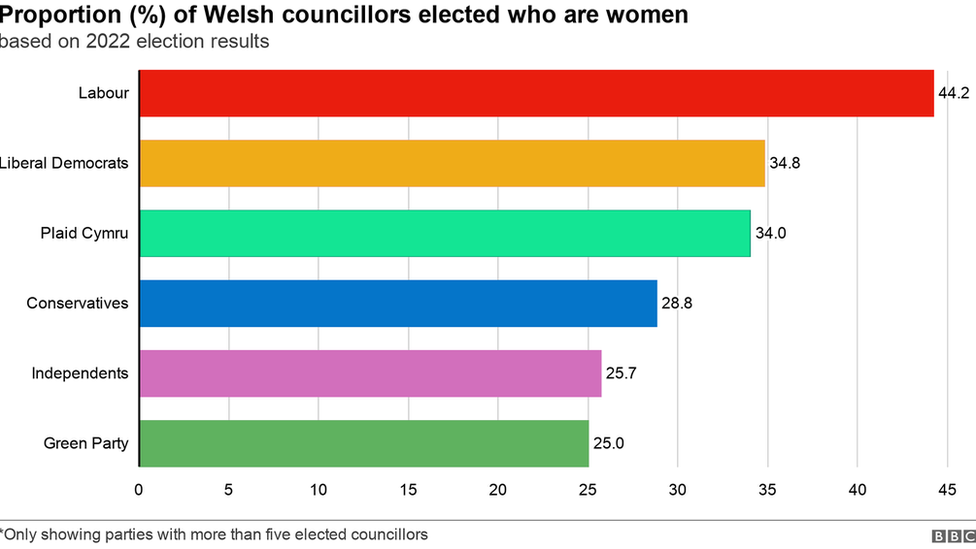
Following Thursday's elections, Welsh Labour had the highest proportion of female councillors on 44%.
Of the main political parties, the Conservatives had the lowest ratio with 29%, while 35% of Plaid Cymru and the Liberal Democrats' councillors in Wales are now women.
Across Wales, the proportion of female councillors increased by 8% to 36%.
That means 442 out of 1,274 elected local authority councillors in Wales are women.
The council with the lowest proportion of female councillors is now Ceredigion with 18%, followed by Pembrokeshire on 22%.

Ms Fookes said the "status quo isn't working it" and that women in politics must now do what they can to achieve gender parity.
"Let's have more council leaders that are women. Those of us who are councillors now - let's all encourage more women to stand next time."
She praised the work of Monmouthshire's previous leader, Conservative Richard John, and its ex-Labour group leader Dimitri Batrouni for calling for equal female and male representation on the council.
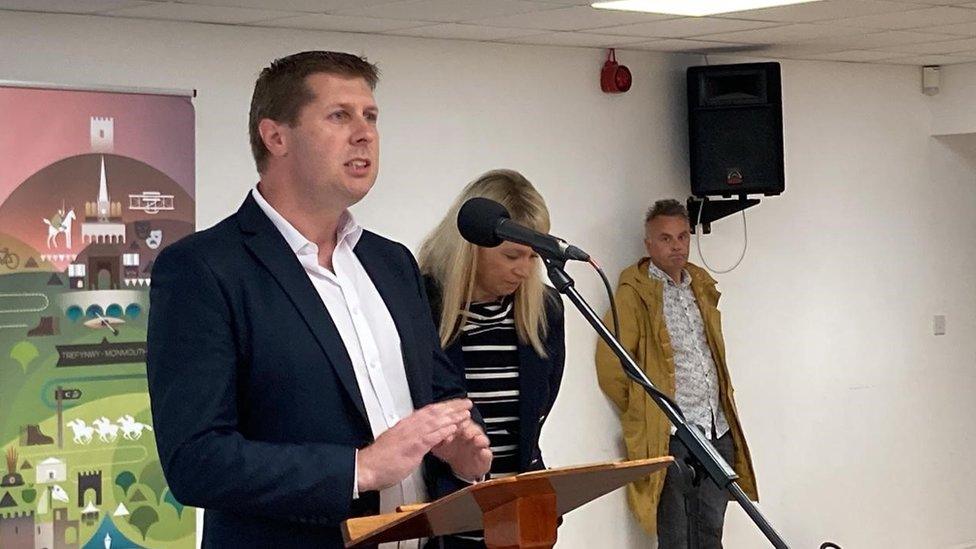
Outgoing Conservative council leader Richard John and ex-Labour group leader Dimitri Batrouni were praised for improving gender representation
"What's really important to recognise in Monmouthshire is that a concerted effort was made - a target was set and we reached it," she said.
"It proves without doubt that unless you have positive action, we can't reach gender balance."
Mr John said the "new council is going to be better equipped to respond to the challenges that our residents face because it's gender balanced".
"I really hope that Monmouthshire is a trailblazer for the rest of Wales to follow and to follow without statutory quotas," he said.
'No gender parity for a long, long time'
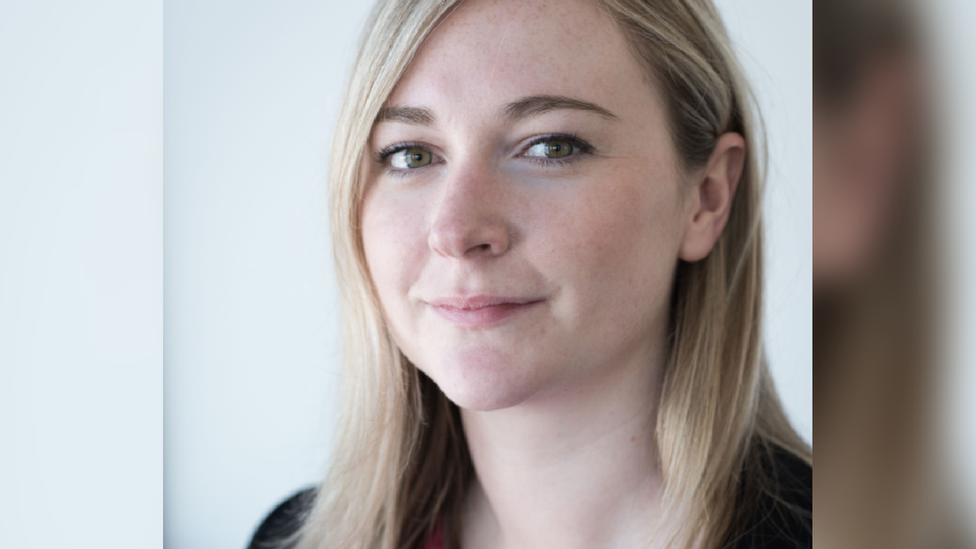
The ERS' Jess Blair believes new targets will be needed by political parties to improve gender balance
Jess Blair, director of the Electoral Reform Society (ERS) in Wales, said Monmouthshire's achievement was "absolutely a testament to positive action".
"Monmouthshire set an ambitious target to hit 50% women a few months ago and they've done it.
"The Vale of Glamorgan have done well because they've had more women elected from Labour which has 18 of 24 councillors as women."
"But we're not going to see gender parity at this rate for a long, long time to come."
'Pale, male and stale'
"There's been a perception of local authorities as pale, male and stale," she said.
Ms Blair believed many voters did not believe the candidates represented them at present.
"Unless we put positive action in place to get more women elected, more people of colour, more disabled candidates, people from the LGBTQ+ community - we're always going to have that disconnect between communities and who actually represents them."
"It's down to positive action, largely by the Labour party, that we have seen an increase this time around, as well as from other parties.
"The Conservatives in Monmouthshire really amped up their efforts to get more female candidates.
"Hopefully we'll learn lessons this time around.
"Positive action and targets have worked. If parties can put those in place now for 2027, hopefully we'll see increased representation."

HEARTBREAKING DECISIONS: Families fleeing the war in Ukraine
WALESCAST: One-stop shop of what's happening in the world of Welsh politics

- Published6 May 2022
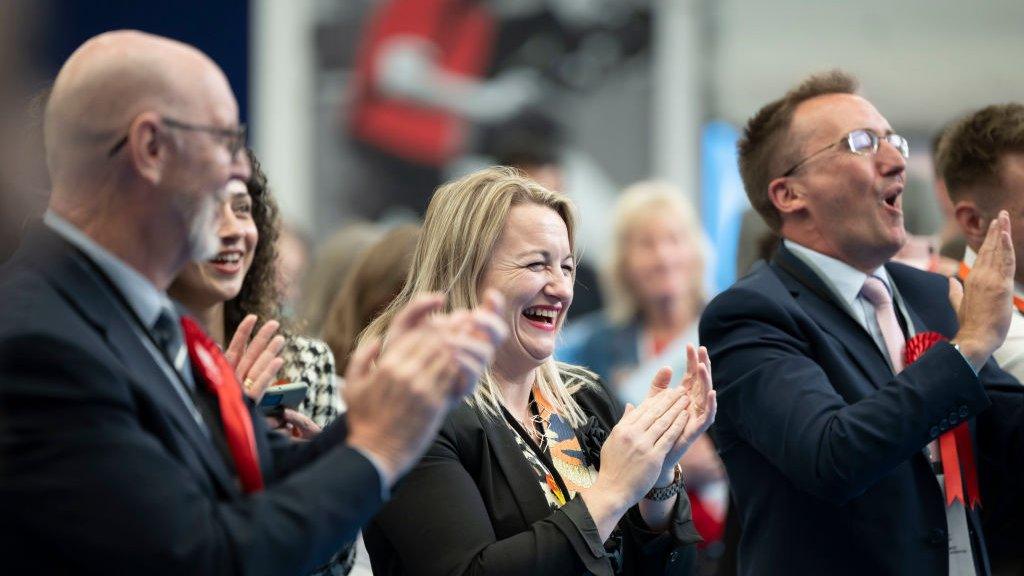
- Published6 May 2022
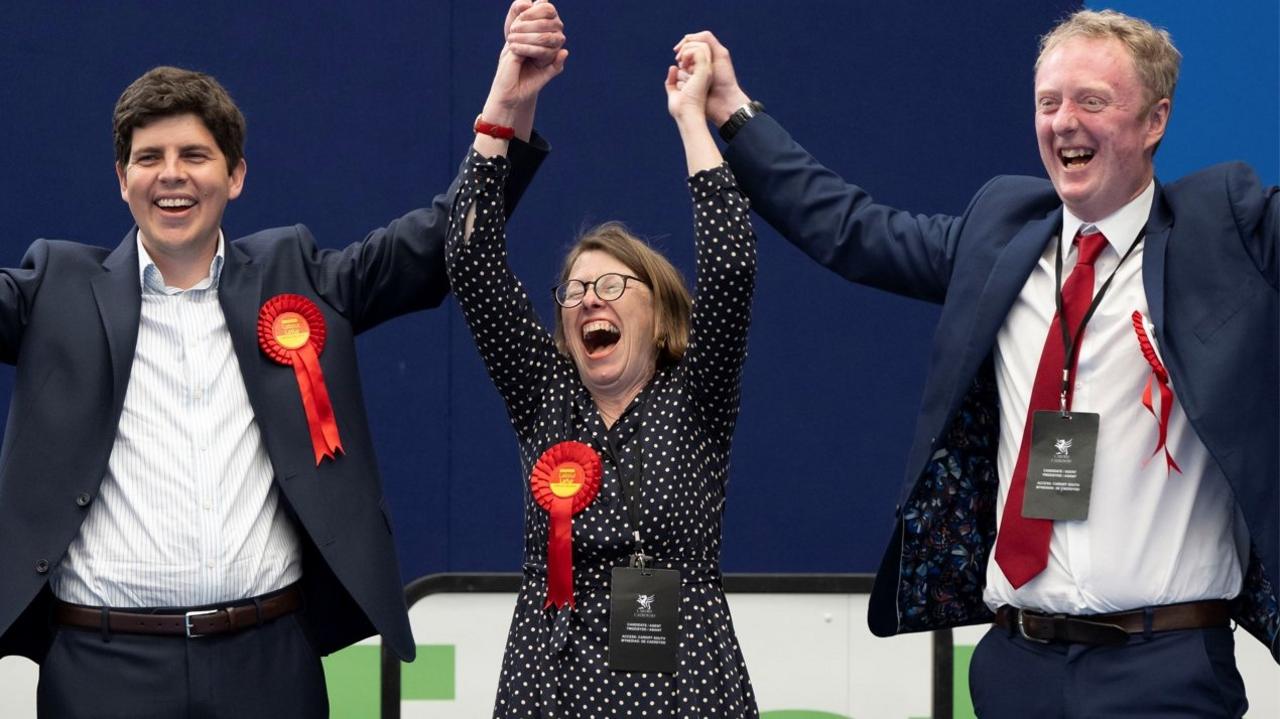
- Published28 April 2022
